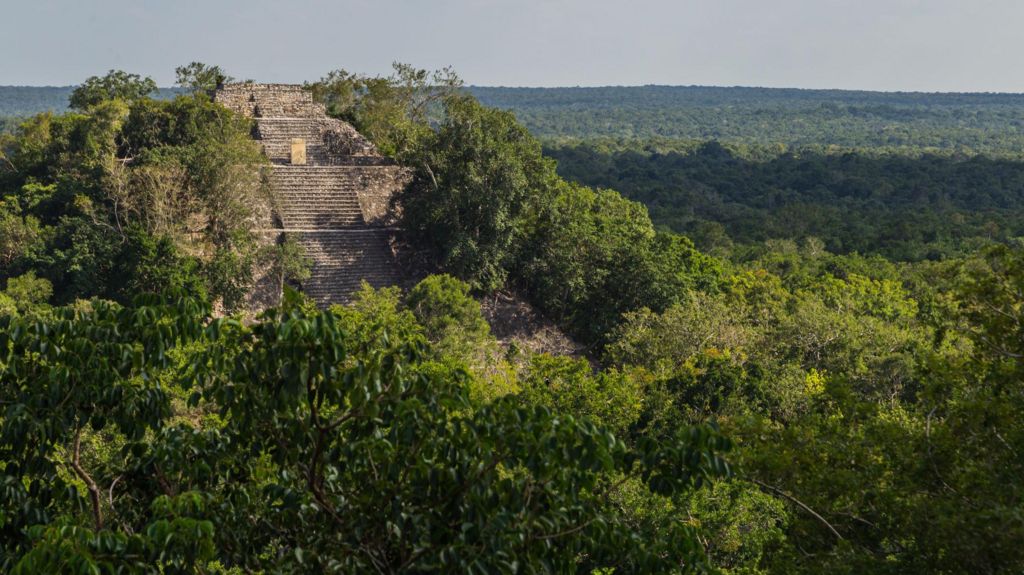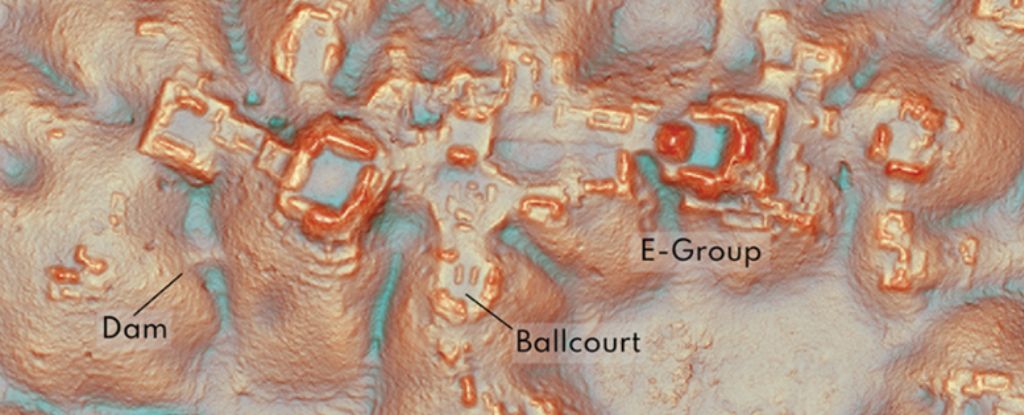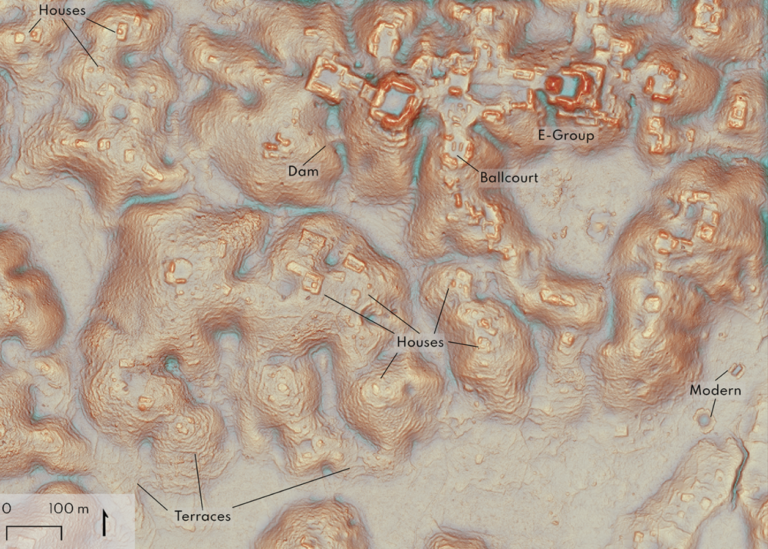Latin America
Related: About this forumLost Maya city with temple pyramids and plazas discovered in Mexico
Source: The Guardian
Lost Maya city with temple pyramids and plazas discovered in Mexico
Archaeologists draw on laser mapping to find city they have named Valeriana, thought to have been founded pre-AD150
Sam Jones
Tue 29 Oct 2024 12.33 GMT
Last modified on Tue 29 Oct 2024 12.58 GMT
After swapping machetes and binoculars for computer screens and laser mapping, a team of researchers have stumbled on a lost Maya city of temple pyramids, enclosed plazas and a reservoir, all of which had been hidden for centuries by the Mexican jungle.
The discovery in the south-eastern Mexican state of Campeche came about after Luke Auld-Thomas, an anthropologist at Northern Arizona University, began wondering whether non-archaeological uses of the state-of-the-art laser mapping known as lidar could help shed light on the Maya world.
“For the longest time, our sample of the Maya civilisation was a couple of hundred square kilometres total,” Auld-Thomas said. “That sample was hard won by archaeologists who painstakingly walked over every square metre, hacking away at the vegetation with machetes, to see if they were standing on a pile of rocks that might have been someone’s home 1,500 years ago.”
Lidar is a remote sensing technique that uses a pulsed laser and other data obtained by flying over a site to generate three-dimensional information about the shape of surface characteristics.
-snip-
Read more: https://www.theguardian.com/world/2024/oct/29/lost-maya-city-valeriana-mexico-temple-pyramids-plazas
Judi Lynn
(164,122 posts)2 days ago
Georgina Rannard
Science reporter
A huge Maya city has been discovered centuries after it disappeared under jungle canopy in Mexico.
Archaeologists found pyramids, sports fields, causeways connecting districts and amphitheatres in the southeastern state of Campeche.
They uncovered the hidden complex - which they have called Valeriana - using Lidar, a type of laser survey that maps structures buried under vegetation.
They believe it is second in density only to Calakmul, thought to be the largest Maya site in ancient Latin America.
The team discovered three sites in total, in a survey area the size of Scotland's capital Edinburgh, “by accident” when one archaeologist browsed data on the internet.

There are no pictures of the city but it had pyramid temples similar to this one in nearby Calakmul
. . .
It is “hidden in plain sight”, the archaeologists say, as it is just 15 minutes hike from a major road near Xpujil where mostly Maya people now live.
There are no known pictures of the lost city because “no-one has ever been there”, the researchers say, although local people may have suspected there were ruins under the mounds of earth.
More:
https://www.bbc.com/news/articles/crmznzkly3go
![]()
![]()
![]()
![]()
![]()
Judi Lynn
(164,122 posts)31 October 2024
By Carly Cassella

(Auld-Thomas et al., Antiquity, 2024)
Anthropologists have peered through the thick jungle of Mexico's Yucatán Peninsula and identified a long-lost Maya city with stepped temple pyramids to rival Chichén Itzá, Río Bec, and Tikal.
Fieldwork on the ground is yet to be conducted by archaeologists, but based on remote sensing data, which maps entire landscapes under dense forests in minute detail, it seems this lush and verdant forest was once home to the Maya.
The newly described city, named Valeriana, features a crowded urban landscape and rural fringes that surpass any known Maya cities found in Belize or Guatemala.
Researchers from the US and Mexico have tallied no less than 6,764 structures hiding beneath the canopy that have never been studied before.

Valeriana
The core site of Valeriana, Block 2, using Lidar data. (Auld-Thomas et al., Antiquity, 2024)
More:
https://www.sciencealert.com/maya-city-of-epic-proportions-discovered-deep-in-mexican-jungle